Best cultural festivals worldwide sets the stage for this enthralling narrative, offering readers a glimpse into a story that is rich in detail and brimming with originality from the outset. Cultural festivals, vibrant expressions of human creativity and heritage, serve as a captivating lens through which we explore the diverse tapestry of our world. From the pulsating rhythms of music festivals to the exquisite artistry of art exhibitions, these events ignite our senses and connect us to the very essence of our shared humanity.
As we delve into the heart of this topic, we will uncover the key elements that contribute to the success of cultural festivals. We will examine the vital role of community involvement, cultural authenticity, and diverse programming in creating truly memorable experiences. Furthermore, we will categorize cultural festivals based on their focus, providing examples of notable events that have left an enduring mark on the global cultural landscape.
Key Elements of a Successful Cultural Festival: Best Cultural Festivals Worldwide
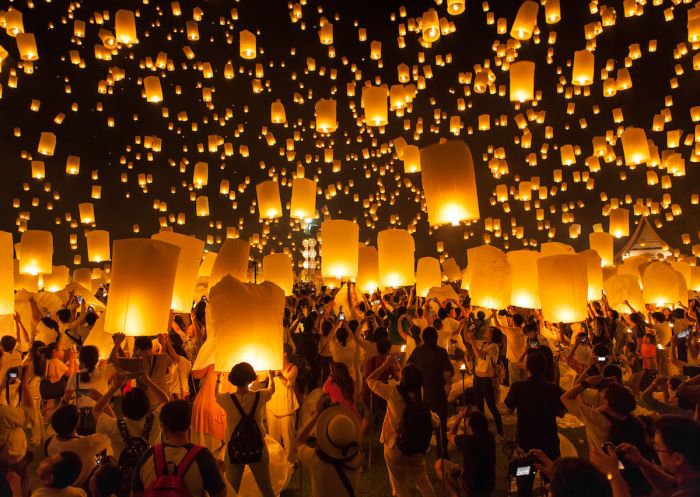
Cultural festivals are vibrant celebrations that showcase the unique traditions, arts, and heritage of communities worldwide. To ensure their success, several key elements play a crucial role in captivating audiences and fostering a sense of cultural appreciation.
One fundamental element is community involvement. Festivals should be deeply rooted in the local community, with residents actively participating in planning, organizing, and showcasing their cultural heritage. This fosters a sense of ownership and pride, making the festival a genuine reflection of the community’s identity.
Cultural authenticity is another essential ingredient. Festivals must present genuine representations of the cultures they aim to celebrate. This involves showcasing traditional music, dance, crafts, and cuisine, ensuring that cultural integrity is preserved and celebrated accurately.
Diverse programming is also vital. Festivals should offer a wide range of activities and events that cater to diverse audiences. This may include workshops, exhibitions, performances, food stalls, and cultural demonstrations, creating a rich and engaging experience for attendees.
Community Involvement
- Local residents actively participate in planning and organizing the festival.
- Community members showcase their cultural heritage through performances, crafts, and storytelling.
- Festivals foster a sense of community pride and ownership.
Cultural Authenticity
- Festivals present genuine representations of the cultures they celebrate.
- Traditional music, dance, crafts, and cuisine are showcased accurately.
- Cultural integrity is preserved and respected.
Diverse Programming
- Festivals offer a wide range of activities and events for diverse audiences.
- Events include workshops, exhibitions, performances, food stalls, and cultural demonstrations.
- Diverse programming creates a rich and engaging experience for attendees.
Types of Cultural Festivals
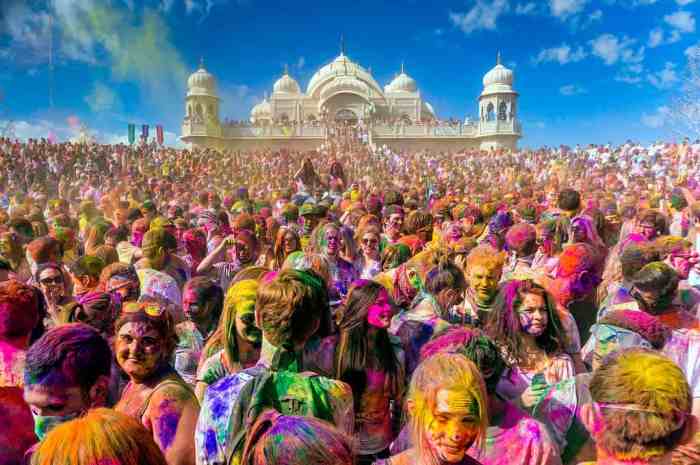
Cultural festivals are diverse and vibrant events that showcase various aspects of human creativity and heritage. They can be broadly categorized based on their primary focus, such as music, art, food, or heritage.
Music Festivals
Music festivals celebrate and promote different musical genres, from traditional folk to contemporary electronic dance music. Notable examples include:
– Glastonbury Festival (UK): A five-day event featuring a wide range of music, arts, and culture.
– Coachella Valley Music and Arts Festival (USA): Known for its eclectic lineup of indie, rock, and electronic music.
– Roskilde Festival (Denmark): A renowned rock and alternative music festival with a strong emphasis on sustainability.
Art Festivals
Art festivals showcase a variety of artistic disciplines, including painting, sculpture, photography, and performance art. Some notable examples are:
– Venice Biennale (Italy): A prestigious international art exhibition held every two years.
– Art Basel (Switzerland): One of the world’s largest contemporary art fairs, featuring works from renowned galleries and artists.
– Edinburgh Fringe Festival (UK): The largest performing arts festival in the world, presenting a diverse range of theater, dance, and music performances.
Food Festivals
Food festivals celebrate culinary traditions and showcase local and international cuisines. Some popular examples include:
– Taste of London (UK): A renowned food festival featuring a wide variety of dishes from around the world.
– Festa do Peixe Assado (Portugal): A traditional Portuguese festival honoring the grilled fish dish “peixe assado.”
– Melbourne Food and Wine Festival (Australia): A month-long celebration of food, wine, and culture with a focus on local and sustainable produce.
Heritage Festivals
Heritage festivals commemorate historical events, cultural traditions, and ethnic identities. Some notable examples are:
– Diwali (India): A five-day festival of lights that celebrates the victory of good over evil.
– Oktoberfest (Germany): A world-famous beer festival that originated in Munich and is now celebrated globally.
– Chinese New Year: A traditional festival that marks the beginning of the lunar new year and is celebrated with parades, fireworks, and family gatherings.
Case Studies
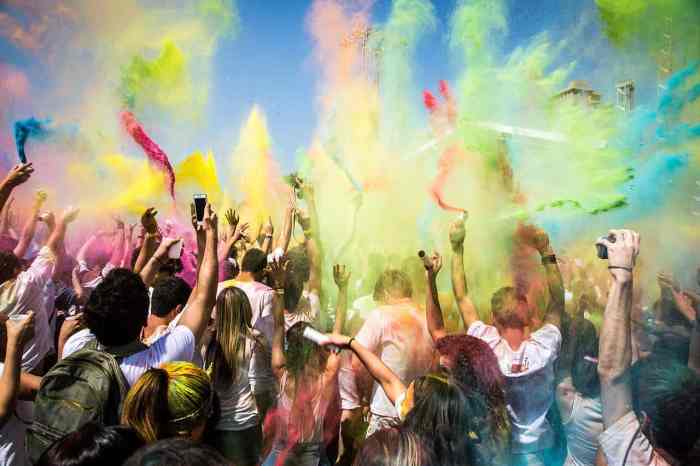
Let’s explore some renowned cultural festivals worldwide, each showcasing unique features, impacting tourism, and holding significant cultural importance.
Rio Carnival
Rio Carnival is an iconic Brazilian festival renowned for its vibrant parades, elaborate costumes, and lively samba music. It attracts millions of visitors annually, making it a major tourist draw. The festival celebrates Brazil’s diverse culture and rich traditions, fostering a sense of unity and national pride.
Oktoberfest
Oktoberfest is the world’s largest beer festival, held annually in Munich, Germany. It attracts over 6 million visitors and showcases Bavarian culture through traditional food, music, and of course, beer. The festival promotes German heritage and provides a platform for local businesses, boosting the region’s economy.
Diwali
Diwali, also known as the Festival of Lights, is a significant Hindu festival celebrated worldwide. It symbolizes the victory of good over evil and the triumph of light over darkness. The festival brings communities together, fostering a sense of unity and cultural connection. Diwali has a significant impact on tourism, with many visitors eager to witness its vibrant celebrations.
Harbin Ice and Snow Festival
The Harbin Ice and Snow Festival is an awe-inspiring winter festival held in Harbin, China. It features magnificent ice sculptures, snow sculptures, and ice lanterns, attracting tourists from around the globe. The festival celebrates the region’s unique winter culture and showcases the creativity of local artists.
Glastonbury Festival
Glastonbury Festival is a legendary music and arts festival held in the United Kingdom. It attracts a diverse audience with its eclectic lineup of music, theater, dance, and other performances. The festival fosters a sense of community and inclusivity, while also contributing significantly to the local economy.
Immerse yourself in the vibrant tapestry of global culture at some of the world’s best cultural festivals. From the lively Holi in India to the enigmatic Burning Man in the United States, these events offer a glimpse into diverse traditions and artistic expressions.
If you seek a more immersive experience, consider embarking on cultural tours in Europe , where you can delve into the rich history, art, and music of the continent. These tours offer a curated journey through iconic landmarks, hidden gems, and cultural festivals, providing a profound understanding of Europe’s cultural heritage.
Cultural Festivals in the Digital Age
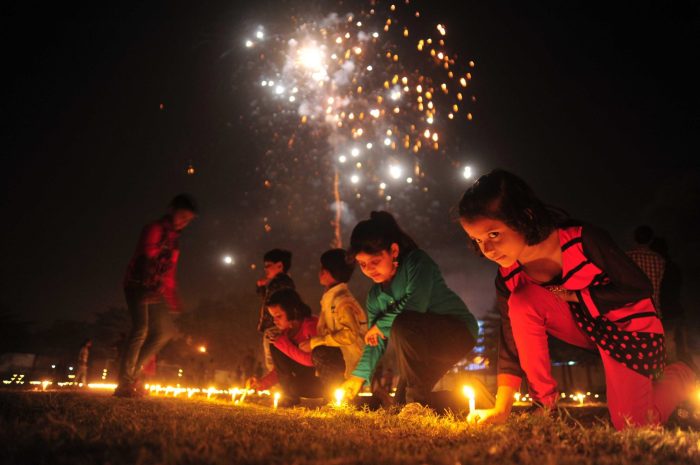
The digital age has transformed the way cultural festivals are promoted, experienced, and shared. Technology has become an integral part of these events, offering innovative ways to engage audiences online and create immersive experiences.
Social media platforms play a crucial role in promoting cultural festivals. They allow organizers to reach a wider audience, share updates, and generate excitement. Live streaming and virtual reality (VR) technology enable audiences to experience festivals remotely, breaking down geographical barriers and making these events accessible to a global audience.
Interactive Experiences, Best cultural festivals worldwide
Technology can also enhance the festival experience for attendees. Interactive installations, augmented reality (AR) apps, and mobile games allow visitors to engage with cultural traditions and art forms in new and exciting ways. For example, the Glastonbury Festival in the UK uses AR technology to create immersive experiences that transport attendees to different worlds.
Virtual Festivals
In recent years, virtual festivals have emerged as a popular way to experience cultural events online. These virtual platforms offer a blend of live performances, workshops, and interactive experiences, allowing attendees to connect with artists and fellow enthusiasts from anywhere in the world.
Indulge in the vibrant tapestry of the world’s best cultural festivals, where traditions come alive and history unfolds before your eyes. Embark on a journey that immerses you in diverse cultures, captivating performances, and authentic experiences. For a truly unforgettable adventure, consider exploring these festivals with the luxury and comfort of a tailored travel package.
Discover luxury travel deals that elevate your festival experience, ensuring seamless transportation, exquisite accommodations, and exclusive access to the most sought-after events. Immerse yourself in the vibrant heartbeat of cultural traditions, where every moment is a cherished memory.
Data Collection and Analytics
Technology also provides valuable data collection and analytics capabilities. Organizers can track audience engagement, measure the impact of marketing campaigns, and gather feedback to improve future events.
Sustainability and Cultural Festivals
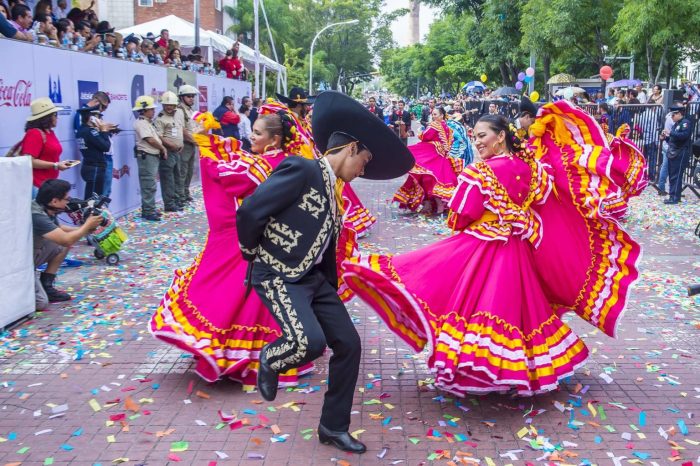
Sustainability is a critical aspect of cultural festival planning and operations. As festivals attract large crowds, it is essential to minimize their environmental impact while maximizing their cultural and economic benefits.
Best practices for reducing environmental impact at cultural festivals include:
Waste Management
- Implement waste sorting and recycling programs to divert waste from landfills.
- Use reusable or biodegradable materials for food and beverage containers, cutlery, and decorations.
- Promote composting of organic waste.
Energy Efficiency
- Use energy-efficient lighting, appliances, and equipment.
- Consider using renewable energy sources, such as solar or wind power.
- Encourage attendees to use public transportation, carpool, or walk to the festival.
Water Conservation
- Install low-flow water fixtures and use water-saving practices.
- Collect rainwater for irrigation and other non-potable uses.
- Encourage attendees to bring their own reusable water bottles.
Sustainable Food and Beverage
- Offer locally sourced and organic food and beverages.
- Reduce food waste by donating surplus food to local charities.
- Use sustainable packaging for food and beverages.
Emerging Trends in Cultural Festivals
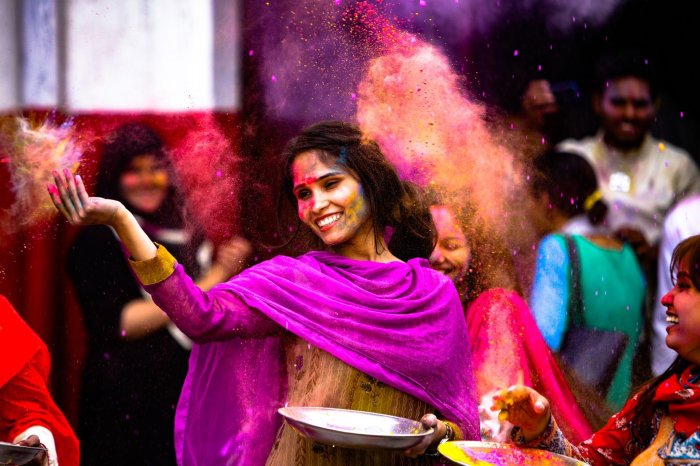
Cultural festivals are constantly evolving, with new trends emerging each year. These trends are shaping the future of these events, making them more immersive, engaging, and sustainable.
One of the most significant trends in cultural festivals is the increasing use of technology. This technology is being used to create interactive experiences, share information, and connect attendees with each other.
Virtual and Hybrid Festivals
In recent years, there has been a growing trend towards virtual and hybrid festivals. These festivals allow people from all over the world to participate in cultural events, regardless of their location. Virtual festivals are held entirely online, while hybrid festivals combine both online and in-person elements.
Virtual and hybrid festivals offer several advantages over traditional in-person festivals. They are more accessible, affordable, and sustainable. They also allow for a wider range of programming, including performances, workshops, and exhibitions.
Immersive Experiences
Another emerging trend in cultural festivals is the use of immersive experiences. These experiences use technology to create a more engaging and interactive environment for attendees.
Immersive experiences can take many forms, such as virtual reality, augmented reality, and interactive installations. These experiences allow attendees to feel like they are part of the festival, rather than just observers.
Sustainability
Sustainability is becoming increasingly important in all aspects of life, and cultural festivals are no exception. Festivals are working to reduce their environmental impact by using sustainable materials, reducing waste, and promoting public transportation.
Some festivals are also using their platforms to raise awareness about environmental issues. For example, the Glastonbury Festival in the UK has a long history of promoting sustainability and has been recognized for its efforts.
As you explore the best cultural festivals worldwide, make sure to consider eco-friendly travel tips to minimize your impact on the environment. From using public transportation to packing reusable items, there are many ways to reduce your carbon footprint while still immersing yourself in the vibrant cultures of different countries.
Community Engagement
Cultural festivals are also becoming more engaged with their communities. Festivals are working to involve local residents in the planning and execution of events. They are also using festivals to promote local culture and traditions.
Community engagement is important for several reasons. It helps to build a sense of ownership and pride in the festival. It also helps to ensure that the festival is relevant to the community it serves.
Conclusion
In conclusion, cultural festivals serve as vibrant platforms for showcasing diverse traditions, fostering community engagement, and promoting cultural understanding. The analysis of successful cultural festivals reveals key elements such as community involvement, innovative programming, and effective marketing strategies.
As we look towards the future, it is imperative for stakeholders, including government agencies, cultural organizations, and private businesses, to recognize the significance of cultural festivals and actively support their growth and development. By investing in these events, we not only preserve our cultural heritage but also create opportunities for economic growth, social cohesion, and global dialogue.
Call to Action
Let us all work together to promote cultural festivals and ensure their continued success. By attending these events, sharing our experiences, and advocating for their funding, we can collectively contribute to a more vibrant and inclusive society that celebrates the richness and diversity of human cultures.
End of Discussion
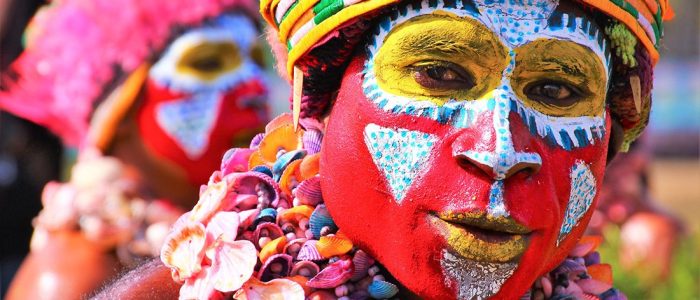
In conclusion, cultural festivals worldwide stand as beacons of creativity, diversity, and cultural exchange. They provide a platform for communities to come together, celebrate their heritage, and foster a sense of belonging. As we embrace the future of cultural festivals, it is imperative that we prioritize sustainability and leverage technology to enhance the accessibility and impact of these events. By supporting and promoting cultural festivals, we invest in the preservation of our cultural heritage and create a more vibrant and inclusive world for generations to come.
Query Resolution
What are the benefits of attending cultural festivals?
Attending cultural festivals offers a multitude of benefits, including exposure to diverse cultures, appreciation for different art forms, opportunities for cultural exchange, and a sense of community.
How can I find cultural festivals happening near me?
There are several ways to find cultural festivals happening near you. You can check local newspapers, community calendars, or online event listings. Additionally, you can visit the websites of cultural organizations or tourism boards in your area.
What are some tips for planning a trip to a cultural festival?
When planning a trip to a cultural festival, it is important to research the festival in advance, purchase tickets if necessary, and make arrangements for transportation and accommodation. It is also a good idea to pack comfortable shoes and clothing, as you will likely be doing a lot of walking and exploring.